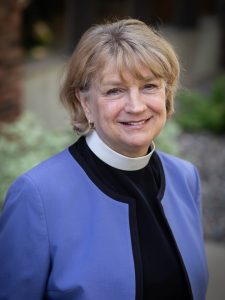 By Bishop Ann Svennungsen
By Bishop Ann Svennungsen
In 1991, the ELCA approved “A Social Statement on Abortion” that provides for our church one of the finest articulations of ethical discernment on an issue that is, once again, tearing our country, our congregations, even our families apart. I recommend it to you as a foundation for your thoughts and actions in light of the overturning of Roe v. Wade.
The social statement speaks to both public policies and personal decisions. It recognizes that “what is legal is not necessarily moral, and what is moral should not necessarily be enacted into law.” Thus, one must read more than just the statement’s public policy sections to understand our church’s moral teaching on this issue.
Regarding public policy, the statement supports the role of government in regulating abortion. The statement continues that “in cases where the life of the mother is threatened, where pregnancy results from rape or incest, or where the embryo or fetus has lethal abnormalities incompatible with life, abortion prior to viability should not be prohibited by law or by lack of public funding of abortions for low-income women.” The overturning of Roe v. Wade means that abortion laws are now determined by individual states. And, some states have already made all abortions (including those listed above) illegal.
“Like each one of us, I bring my own, narrow, lived experience to this conversation.”
Regarding personal, ethical discernment, the statement reads: “Because we believe that God is the creator of life, the number of induced abortions is a source of deep concern to this church. … The strong Christian presumption is to preserve and protect life. Abortion ought to be an option only of last resort.”
Neither Scripture nor the Lutheran Confessions tell us when “life begins.” Jesus calls us to love our neighbor, to love our enemy, to love the person in need. He doesn’t address the question of when a fetus becomes a living neighbor. Surely, when the fetus becomes viable – around 23 weeks – but what about when brain functioning begins in the first 12 weeks?
MUCH HAS CHANGED since 1991. Birth control methods have expanded and become more acceptable. Abortion rates in the U.S. have decreased – but were still estimated to be 625,000 in 2019 (CDC). Genetic testing allows greater knowledge about “lethal abnormalities incompatible with life.” On the other hand, genetic testing also means that “suddenly, a new power [is] thrust into the hands of ordinary people – the power to decide what kind of life is worth bringing into the world.” Do you choose to keep an embryo with a genetic risk of breast cancer? Of schizophrenia? (See “The Last Children of Down Syndrome,” The Atlantic, December 2020.)
As a 67-year-old white woman with financial resources who raised a son with Down Syndrome, I – like each one of us – bring my own, narrow, lived experience to this conversation. In the U.S. in 2014, 49% percent of women who had an abortion lived below the poverty line, with another 26% very close to poverty (NY Times, December 2021). Theirs is a very different lived experience than mine.
“‘What is legal is not necessarily moral, and what is moral should not necessarily be enacted into law.’”
The ELCA social statement is clear about this diversity of experience: “We recognize that conscientious decisions need to be made in relation to difficult circumstances that vary greatly. What is determined to be a morally responsible decision in one situation may not be in another. … We have the responsibility to make the best possible decisions in light of the information available to us and our sense of accountability to God, neighbor, and self. In these decisions, we must ultimately rely on the grace of God.”
May we be the kind of church willing to walk with all people as they face such moments in their lives. For, I believe, it is the community of faith – providing care and moral wisdom – that can embrace us and guide us. Even more, it is the community that proclaims God’s grace, a grace that holds and redeems in ALL moments of our lives.
With all of this in mind, I encourage you to take a deep breath and pray with me:
“Giver of Life. May we be the kind of church willing to walk compassionately with all people as they face complicated and painful moral decisions in their lives. Amen.”

